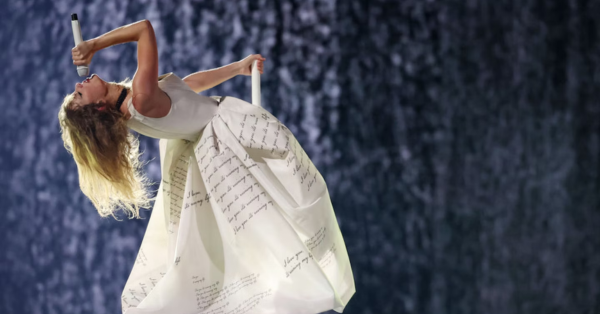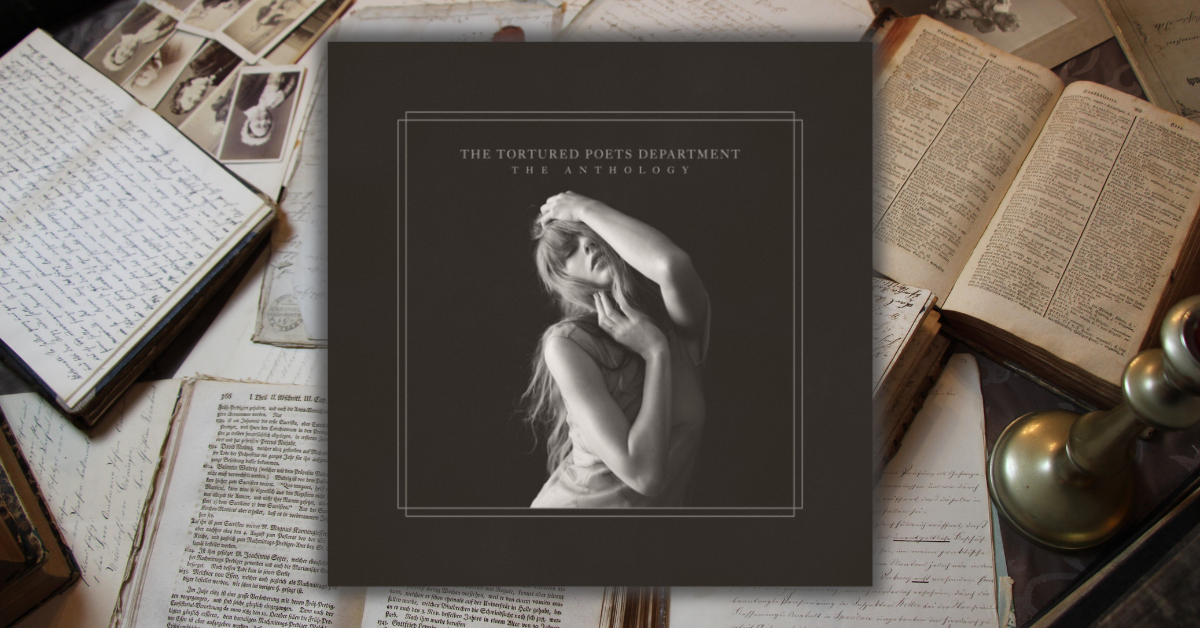by Robin Raven
Taylor Swift is a powerhouse songwriter who touches millions of listeners’ hearts — including mine. Since I became a Swiftie for life during the original Speak Now era, I always appreciated the numerous literary references in many of her songs. They enhance the depth of her storytelling exploration and intellectual experimentation in music.
Swift takes literary allusions to a whole other level with her latest album The Tortured Poets Department (and its surprise second part, The Tortured Poets Department: Anthology), which delighted me. With a wonderful, academic title like that, it’s easy to understand why.
The album’s title song references Dylan Thomas and Patti Smith. Patti Smith clearly appreciated this. She posted a photo of her reading a Dylan Thomas book on Instagram and stated how she was moved to be mentioned in his company, then she thanked Swift. She later referenced the lyrics during a concert in Ireland, reported Parade Magazine.
Another revered author that Swift references in many of her songs is F. Scott Fitzgerald. When she was younger, she used to caption several of her Instagram posts with his quotes. More significantly, she has often referenced his works in lyrics. She has multiple references to The Great Gatsby in Reputation. Fitzgerald references are also in “So Long, London”. The opening of the song tells of seeing “ferry lights through the mist”, which is what happened in the novel when Jay Gatsby shows Nick the light of his former flame Daisy’s home. She makes good use of this metaphor of how what was once a great hope and ideal now is only radiated in fog.
Nostalgic tales
J.M. Barrie, the creator of Peter Pan, is another author that Swift has frequently referenced, and she has alluded to his work in metaphors that quickly and clearly communicate so much to her listeners. Back on Swift’s hit song “Cardigan” from her album Folklore, which was released in 2020 during the pandemic, Swift references Peter Pan in the lyric, “tried to change the ending, Peter losing Wendy” in what might be interpreted as her revising the text of the story so that Wendy stays in Neverland with Peter Pan and doesn’t grow up. Then, there is a song that seems to be all about Peter Pan on The Tortured Poets Department that’s aptly called “Peter”.

The narrator of “Peter” appears to be a disillusioned adult Wendy who bemoans that Peter was going to grow up and find her, but those are promises he hasn’t kept. It also references The Lost Boys. Then she cleverly seems to twist the song to paralleling her own relationship (seemingly with Alwyn) as details such as age and personal circumstances match up to their relationship, as well as the connection between Peter and Wendy.
Love, loss, and betrayal
Things get much more complex than direct references on this album. There’s the song “Cassandra” on the anthology that alludes to the Cassandra of Ancient Greek mythology. Cassandra appeared in Homer’s The Iliad. She was the daughter of Priam and Hecuba, and she has the gift of prophecy. Nevertheless, when she is cursed by Apollo, nobody believed her prophecies because they then see her as a liar. Swift has openly discussed how traumatized she was when she was manipulated and set up by Kim Kardashian and Kanye West so that the public believed she was a liar. She was so upset that she went into hiding from the public for a long time, and she spoke about the dramatic impact it had on her life a few months before The Tortured Poets Department was released. Swift cleverly uses the symbolism of this classic character to tell the story of her own trauma in a deeper way to fans.
Then there are whole songs that clearly pay tribute to classic works of literature that Swift uses for metaphors and literal references to her own experiences. That’s the case with “The Albatross”. This song was featured on one of four special variants of The Tortured Poets Department that Swift sold upon its release, and the song also appeared in the extended anthology version. It’s a clear and direct reference to Samuel Taylor Coleridge’s classic, beloved poem “The Rime of the Ancient Mariner”.

In “The Rime of the Ancient Mariner”, a sailor kills an albatross, a special bird who was believed to be good luck, he must wear the corpse of the bird around his neck as a reminder of the kill. In her song “The Albatross”, the woman is the albatross, and the situation in the song seems to refer to what’s beyond one’s control. Swift has often referred to her fears about fame being a burden on those around her and how she tries to act normal, yet she cannot control whether those in her life will be endlessly hounded by the press, which she spoke about in the documentary Miss Americana. This song seems to present the metaphor of her fears of her fame being the albatross to those who love her.
In the poem, the albatross is released by a means that’s beyond the protagonist’s control. Similarly, Swift admits that the love is beyond her control. In a twist at the end that clearly makes it more about her own life, the song’s narrator addresses that her love knew the situation and chose that life, and they crossed their heart then blamed her anyway although they chose to be with her knowing full well what that would entail.
These stories belongs to everyone
I have always loved The Secret Garden by Frances Hodgson Burnett, so I was thrilled at the direct references to that book in “I Hate It Here”, a standout track from the Anthology. The reference is crystal clear as she sings, “I read about it in a book when I was a precocious child.”
The Tortured Poets Department ultimately ends with “The Manuscript”, a song that calls back to the literary nature of the album’s theme. It’s complex with references to past songs and stories from Swift as well as literary references. It includes her lyric, “The professor said to write what you know”. That refers to a part of Louisa May Alcott’s Little Women when heroine Jo March’s professor instructs her to write what she knows. It also references her own song and music video for “All Too Well”, which is largely considered Swift’s masterpiece among her fans.
At the end of “The Manuscript”, Swift concludes that, “Now and then I reread the manuscript, but the story isn’t mine anymore”. That correlates with an Instagram post that Swift made to announce the anthology’s surprise release. She states, “And now the story isn’t mine anymore… it’s all yours”.
Swift is releasing her own tales and folklore to belong to her audience, with all the literary tributes and personal stories woven together. You’d be wise to assume that nothing is coincidental when it comes to Swift’s carefully curated stories — and the tools that she uses to craft how readers experience the world of her music.






